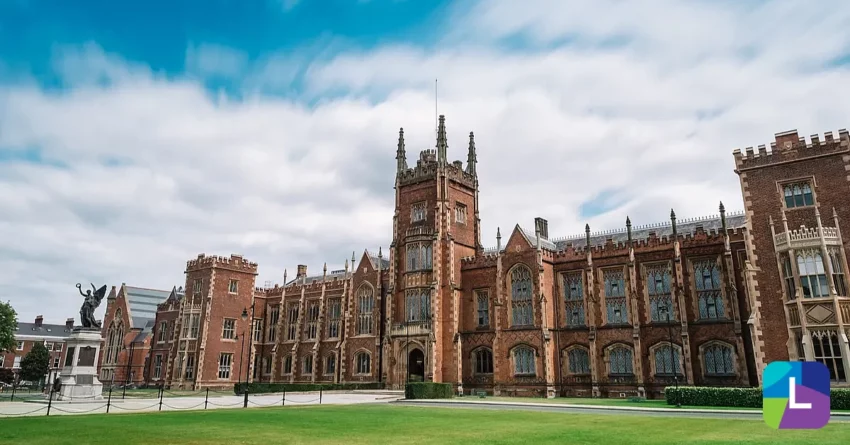Admission to a prestigious university is a long-term aspiration for many prospective students. It’s an enriching experience like no other; being exposed to world-class teachings, innovative research opportunities, and a network of high-calibre alumni. Another advantage to attending a prestigious university is the promising career prospects, including a high salary package post-graduation. But does a university’s reputation affect your future earning potential?
How much of this is true?
IFS report
In April 2022, the Institute of Fiscal Studies (IFS) reported graduates in England who gained a first or upper-second-class (2:1) degree had a higher average salary than those who earned a second-class (2:2) or below grade, regardless of the university they attended.
Figures showed earning differences between the graduates’ grades are large. Five years after graduation revealed those who achieved an upper second class earned £3800 more than those with a lower second grade.
However, many prospective students around the world are still advised that a 2:2 from a highly selective university might receive a higher-paying role than those who attended a slightly less selective university achieving a higher grade.
Does your subject affect your future earnings?
The IFS report highlights future earnings vary from subject to subject. For many courses, the difference between a First and an upper second is inconsequential in earnings. But, there are differences in earnings based on subjects. Those who study law or economics with a 2:2 grade will most likely always out-earn those who studied a humanities degree with a first.
However, it revealed a gender inequality gap. Top universities such as the University of Cambridge, Imperial College London and others have shown the average payoff to a first compared to a 2:2 is nearly non-existent for women, compared to a large 14% for men.
Higher earnings are sometimes associated with demand. According to The Complete University Guide, the following are currently the top 10 highest average-paying degrees in the UK for graduates.
- Dentistry – £38,000
- Medicine – £33,500
- Veterinary Medicine – £31,000
- Chemical Engineering – £30,000
- Pharmacology & Pharmacy – £30,000
- Economics – £29,750
- Electrical & Electronic Engineering – £29,000
- General Engineering – £29,000
- Social Work – £29,000
- Aeronautical & Aerospace Engineering – £28,000
- Building – £28,000
- Mechanical Engineering – £28,000
- Mathematics – £28,000
- Physics & Astronomy – £28,000
For students considering lucrative careers, it’s worth noting where you study, what you study and how well you perform will have a significant impact in determining your future earnings. The earnings for a Master’s can be extremely varied. Those who undertake an EMBA or MBA tend to earn more on average than those who study other Masters, however, this can be dependent on networking, university, the company you intend to join/continue working for, and the individual’s ambitions.
Top universities have well-established alumni networks and career connections
Many prestigious universities offer a wide range of recruitment opportunities that can open a lot of doors for ambitious students. This could be the biggest difference between studying at a well-regarded university compared at a lesser-known university.
Schools such as the University of Oxford, the University of Cambridge, London Business School and many others offer a spiderweb of an alumni community network which are very active and often participate in a number of career events, live vacancies and other community events. They also participate in mentoring programmes and learning experiences. Many also have platforms that allow alumni to communicate and share tips or inspirational messages to students.
This is not to say lesser-ranking universities won’t have the same opportunities, community networks and events – they will typically be less of a focus on the academic front.
Universities offer student diversity
With the ever-changing world, we currently live in, universities are constantly changing to align with all prospective students, both nationally and internationally. Attracting a broad and diverse range of students brings benefits such as prestige, brand recognition, and a higher pool of alumni network.
International students tend to make up a significant percentage of the university student population. In this instance, studying abroad at a university with a global reputation can bring many benefits. Here are our seven reasons to study in the UK.
So how does a university ensure international students are integrated into the community? They ensure this by welcoming international students through numerous rich activities and events (plus many more) in a number of ways including seminars, student unions, and the local community.
Should the university’s reputation matter?
When choosing to study, it can be easy to assume the university with the best reputation will best prepare you for a successful career. However, data has shown that academic performance is more vital, especially when it comes to future earnings.
So should their reputation matter? Yes, and no.
If you are an individual who enjoys bragging, a reputable university will help add to your achievement list. If you are ambitious to become the very best, a reputable university can help steer your career through a specific path by industry-leading alumni.
However, if their reputation doesn’t bother you, aim to choose a university that provides an environment for you to thrive, both academically and internally as part of the community. In some cases, this may be a prestigious university.
In either scenario, you shouldn’t make your decision solely on reputation alone – you should research extensively.
At Lendwise, we understand the importance of an MBA. It can help you advance your career, earn a higher salary, and achieve your professional goals. But we also know they can be expensive.
We also understand that everyone’s journey is different. Whether you’re applying for a part-time or full-time MBA, the loan can help you achieve your goals. When you’re ready, you can *apply online. We’ll help get on the path to success.
Representative Example: Assumed borrowing of £30,825 over 120 months at 12.73% APR representative. Monthly cost of £509.26. Total amount repayable of £61,199.65. Interest rate of 11.62% p.a.(fixed) and total fees of £925.00. Available for loan amounts between £5,000 – £100,000.
(Representative Example date: October 2024)
*Credit is subject to status and loan approval is not guaranteed. Over 18’s only. T&Cs apply.




